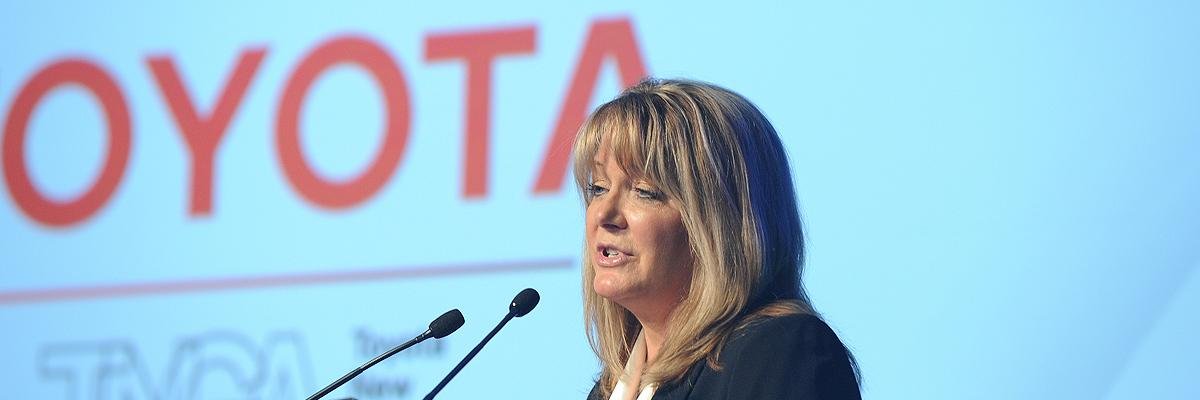News : Japan
Toyota invests $400 million in W.Va engine plant
2017-08-01

Toyota Motor Manufacturing West Virginia has already proven itself as the "little engine plant that could." Now, it is taking a $400 million investment from the automaker to do more with less.
The plant is renovating its production lines and dedicating nearly 500,000 hours to retrain employees to streamline processes without sacrificing quality. Leah Curry, president of Toyota Motor Manufacturing West Virginia, said at the CAR Management Briefing Seminars here on Monday that to achieve this level of efficiency, the team has been analyzing all instances of waste and taking advantage of every minute of free time.
"As we look at the wasted motion of the team members, we chart those things out," Curry said in an interview with Automotive News. "We can understand every movement."
The renewed effort in efficiency is a reflection of Toyota's larger initiative to simplify its production process. The program, known as Toyota New Global Architecture, began in Japan and is now moving to the North America plants. Following the investment in the West Virginia plant, which Toyota announced in September, the automaker said in April that its Georgetown, Ky. plant, which manufactures the 2018 Toyota Camry, will receive a $1.3 billion investment for TNGA renovations.
Since Toyota opened its West Virginia plant 20 years ago, the plant has achieved production rates of 650,000 engines and 740,000 transmissions a year. Curry said a new transmission runs off the line every 25 seconds, and a completed four-cylinder engine comes every 30 seconds — the fastest production times among Toyota's global operations.
"We do all this with a workforce of about 1,650 team members," she said. "You might say we're the little engine plant that could."
Under TNGA, the West Virginia plant has renovated its production line to allow workers to move with the engine, rather than stop the line every time they need to perform a task. The program also requires workers learn 50 percent more processes. Curry said the factory has been taking the time in between production lines going on and offline to train workers. The key to the whole operation, she said, is constant reflection.
"You visualize every hour, every moment, and figure out what those problems are," Curry said.
Original Source : autonews.com
 Ily Es
Ily Es
Translator
- Your comment
Select Language/Country
© 2016 Naciha.com
